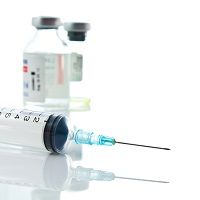Article
Imperfect Vaccines May Promote Circulation of Virulent Pathogens
Author(s):
Unless a vaccine is considered "perfect", it could be causing more harm than good.

Unless a vaccine is considered “perfect”, it could be causing more harm than good.
Most vaccines prevent the transmission of viruses; however, the ones known as leaky vaccines keep the host alive while also allowing pathogens to spread. A collaborative team studied immunization against Marek’s disease (MDV), caused by a herpesvirus, in chickens. The findings give insight to how imperfect vaccines can enhance the virulence of pathogens and inhibit the fight against antibiotic resistance.
“Vaccine failure in the face of virulent pathogens has been documented for at least two viruses other than MDV: feline calicivirus and infectious bursal disease virus in poultry,” the authors wrote in PLOS Biology. “Both cases are also associated with long-term use of leaky anti-disease vaccines.”
Certain strains of MDV are up to 100% deadly in unvaccinated animals, and in this analysis the team examined HPRS-B14, 571, 595, Md5, and 675A. When the animals were left unvaccinated, they all succumbed to MDV within 10 days, but when injected with the imperfect vaccine they survived for 30 days or more. The prolonged time, however, allowed the transmission and spread of the virus in the environment.
“Our data show that anti-disease vaccines that do not prevent transmission can create conditions that promote the emergence of pathogen strains that cause more severe disease in unvaccinated hosts,” the authors confirmed.
The team clarified that the results do not suggest that the imperfect vaccines caused the evolution of MDV strains, but they appear to have influenced virulence. This may drive the transmission of harmful diseases and indicates that the same could happen in the human population.
Furthermore, this emphasizes the need to better understand vaccines as a whole — including why the 2014-2015 flu vaccine was so widely ineffective.





